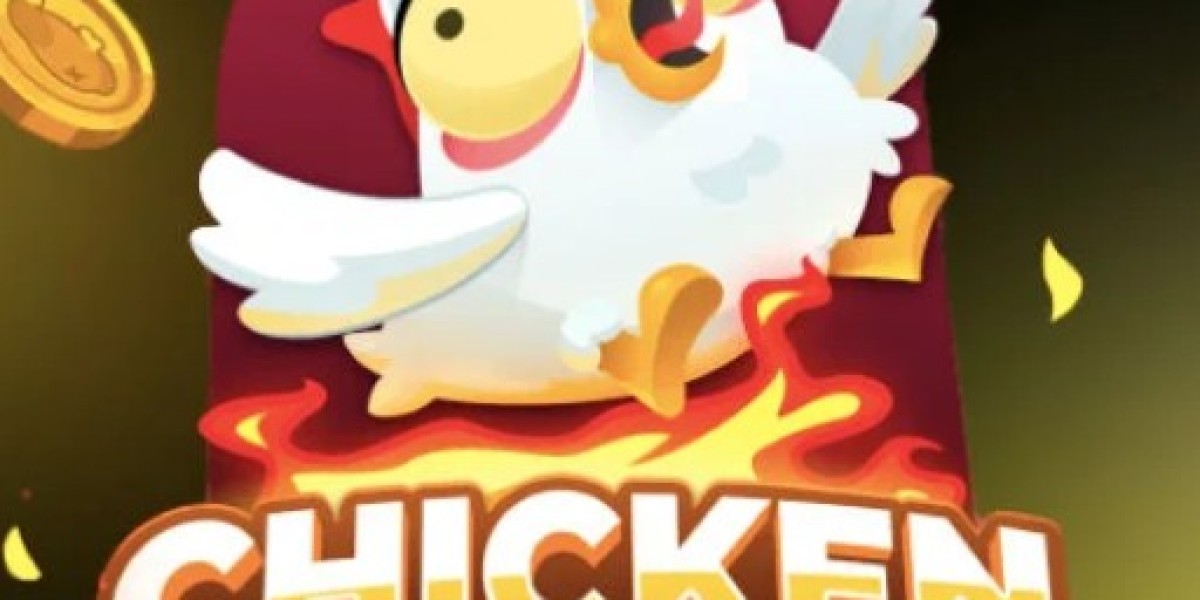Chicken Road: A High-Stakes Gamble in the Casino of Life
Chicken Road, also known as the Hawk-Dove game or the Game of Chicken, is a classic model in game theory that explores strategic interaction and conflict resolution. It's more than just a theoretical exercise; it's a powerful lens through which we can understand a wide range of real-world scenarios, from international relations to business negotiations, and even everyday social interactions. At its heart, Chicken Road captures the tension between cooperation and competition, risk and reward, and the ever-present possibility of disaster when two parties are locked in a potentially destructive course of action. While not directly a casino game, its principles apply to many high-stakes situations, including elements of poker and even risk assessment in various casino ventures.
Understanding the Basic Premise
The traditional Chicken Road scenario involves two drivers speeding towards each other on a collision course. Each driver has two options: continue straight (defect) or swerve aside (cooperate). The outcomes are determined by the choices made by both drivers:
Both Swerve (Cooperation): Both drivers avoid a collision, resulting in a relatively small reward for each. They both "lose face" but survive.
One Swerves, One Continues (Asymmetric): The driver who swerves is labeled the "chicken" and suffers a significant loss of face, while the other driver gains prestige and a larger reward. The continuing driver "wins."
Both Continue (Defection): Disaster! Both drivers crash, resulting in a catastrophic outcome for both. This is the worst-case scenario.
The payoff matrix for this game clearly demonstrates the inherent risks and rewards:
| Driver 2 Swerves | Driver 2 Continues | |
|---|---|---|
| Driver 1 Swerves | (Small Reward, Small Reward) | (Loss of Face, Prestige) |
| Driver 1 Continues | (Prestige, Loss of Face) | (Catastrophe, Catastrophe) |
The key element of Chicken Road is the inherent instability. Each player is incentivized to do the opposite of what they believe the other player will do. If you think your opponent will swerve, you should continue straight to gain the most significant reward. Conversely, if you believe your opponent will continue straight, you absolutely must swerve to avoid the catastrophic outcome. This creates a situation of strategic uncertainty and potential for miscalculation, which can lead to disastrous consequences.
Chicken Road in Real-World Scenarios
Beyond the literal image of speeding cars, the Chicken Road model offers valuable insights into various real-world scenarios:
International Relations: Think of the Cold War arms race. Both the United States and the Soviet Union were engaged in a dangerous game of brinkmanship, constantly escalating their military capabilities. Swerving (disarming) meant appearing weak and potentially vulnerable. Continuing straight (escalating) meant risking nuclear annihilation. The delicate balance of mutual assured destruction (MAD) was essentially a form of Chicken Road, where the catastrophic outcome of all-out war served as a deterrent.
Business Negotiations: In competitive business negotiations, companies often engage in strategic posturing. Each side tries to gain the upper hand by making aggressive demands and threatening to walk away from the deal. Swerving (conceding) means accepting less favorable terms. Continuing straight (holding firm) means risking the deal falling apart. The Chicken Road - https://chicken-road-365.com/, dynamic can influence pricing strategies, contract terms, and even merger negotiations.
Social Interactions: Even in everyday social interactions, we can observe elements of Chicken Road. Consider a situation where two individuals are competing for the same promotion at work. Both individuals might engage in aggressive tactics, such as undermining each other or taking credit for others' work. Swerving (backing down from the competition) means accepting a less desirable outcome. Continuing straight (aggressively pursuing the promotion) means risking a damaged reputation and strained relationships with colleagues.
The beauty of the Chicken Road model lies in its ability to illuminate the underlying dynamics of these seemingly disparate situations. By understanding the strategic incentives and potential consequences, we can make more informed decisions and potentially avoid catastrophic outcomes.
Chicken Road and Casino Games: A Parallel
While Chicken Road isn't a direct casino game, its principles echo in the high-stakes environment of casinos, particularly in games that involve bluffing, risk assessment, and strategic decision-making:
Poker: Poker, especially Texas Hold'em, shares striking similarities with the Chicken Road dynamic. Players must constantly assess their opponents' hands and betting patterns to determine whether they are bluffing (continuing straight) or holding a strong hand (potentially forcing you to swerve). A player who folds (swerves) loses the current bet but avoids potentially larger losses. A player who calls (continues straight) risks losing a significant amount of money but could also win a substantial pot. The bluffing game in poker is a microcosm of Chicken Road, where players are constantly trying to outmaneuver each other and avoid being "chickened out."
High-Stakes Roulette: Consider a player betting heavily on a single number in roulette. The potential reward is high, but the risk of losing everything is also substantial. The player is essentially engaging in a form of Chicken Road with the randomness of the roulette wheel. Continuing straight (betting heavily on the number) means risking a significant loss. Swerving (reducing the bet or playing conservatively) means minimizing the risk but also reducing the potential reward.
Blackjack Strategy: Even in blackjack, players face decisions that mirror the Chicken Road dilemma. Hitting (continuing straight) means risking busting (going over 21) but also potentially improving their hand. Standing (swerving) means playing it safe but potentially missing out on a better hand. Optimal blackjack strategy involves understanding the probabilities and making calculated decisions based on the dealer's upcard, which is a form of assessing the opponent's potential strength.
In each of these casino games, players are constantly weighing the risks and rewards, trying to predict their opponents' actions (in the case of poker) or the outcome of a random event (in the case of roulette and blackjack). The Chicken Road model provides a framework for understanding the strategic thinking that underlies these decisions.
Strategies for Navigating Chicken Road Situations
Successfully navigating Chicken Road situations requires a combination of strategic thinking, risk assessment, and psychological awareness:
Establish Credibility: In many Chicken Road scenarios, establishing credibility is crucial. This means demonstrating a willingness to follow through with your threats, even if it means incurring some cost. In business negotiations, this might involve walking away from a deal rather than accepting unfavorable terms. In international relations, it might involve taking decisive action to deter aggression. However, credibility must be carefully managed, as excessive aggression can lead to unintended escalation and catastrophic outcomes.
Clear Communication: Clear and unambiguous communication can help to reduce the risk of miscalculation. By clearly articulating your intentions and boundaries, you can signal your willingness to cooperate while also deterring your opponent from pushing too far. This might involve setting clear red lines in international relations or clearly outlining your non-negotiable terms in business negotiations.
Commitment Devices: A commitment device is a strategy that limits your own options, making it more credible that you will follow through with your threats. For example, in the Chicken Road scenario with cars, a driver might publicly announce that they will not swerve under any circumstances. This makes it more likely that the other driver will swerve to avoid a collision. However, commitment devices can also backfire if they limit your flexibility and prevent you from adapting to changing circumstances.
De-escalation Techniques: When faced with a potentially catastrophic situation, de-escalation techniques can be crucial. This might involve finding common ground, making concessions, or seeking mediation. The goal is to reduce the tension and create an opportunity for both parties to back down without losing face.
Understanding Your Opponent: Knowing your opponent's motivations, values, and risk tolerance is essential. This allows you to better predict their behavior and tailor your strategy accordingly. In poker, this means observing your opponents' betting patterns and body language to identify potential bluffs. In business negotiations, this means understanding your counterpart's priorities and constraints.
The Importance of Risk Assessment
At its core, Chicken Road highlights the critical importance of risk assessment. Before engaging in any potentially destructive course of action, it's essential to carefully weigh the potential risks and rewards. This involves:
Identifying Potential Outcomes: What are the possible outcomes of each action?
Estimating Probabilities: What is the likelihood of each outcome occurring?
Evaluating Costs and Benefits: What are the costs and benefits associated with each outcome?
Calculating Expected Value: What is the expected value of each action, taking into account the probabilities and costs/benefits of each outcome?
By systematically assessing the risks and rewards, you can make more informed decisions and potentially avoid catastrophic outcomes. In the context of casino games, risk assessment is crucial for managing your bankroll and making smart betting decisions. A poker player who accurately assesses the risks and rewards of bluffing is more likely to succeed than a player who bluffs indiscriminately.
Ethical Considerations
While Chicken Road is a useful model for understanding strategic interaction, it's important to consider the ethical implications of using aggressive tactics. In some cases, engaging in Chicken Road-like behavior may be morally justifiable, such as when defending against aggression or protecting vital interests. However, in other cases, it may be unethical to put others at risk for your own gain. The line between strategic assertiveness and reckless endangerment can be blurry, and it's important to consider the potential consequences of your actions on all parties involved.
Conclusion: Navigating the Complexities of Strategy
The Chicken Road model provides a valuable framework for understanding strategic interaction and conflict resolution in a wide range of contexts. While the game itself is a simplified representation of reality, it captures the essential tension between cooperation and competition, risk and reward, and the ever-present possibility of disaster. By understanding the dynamics of Chicken Road, we can make more informed decisions, avoid catastrophic outcomes, and navigate the complexities of strategic interactions with greater skill and awareness. Its echoes in casino games serve as a reminder that even in seemingly random environments, strategic thinking and risk assessment are paramount for success. Ultimately, the lessons of Chicken Road extend far beyond the casino floor, offering valuable insights into the human condition and the challenges of navigating a world filled with uncertainty and strategic interdependence.





